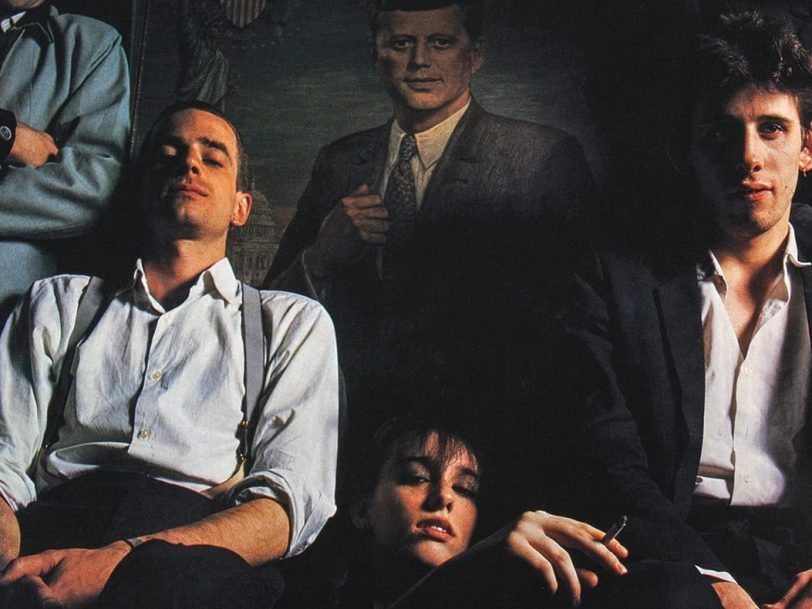It’s fair to say that The Pogues’ debut album, Red Roses For Me, flipped the finger to the zeitgeist when it was first released in autumn 1984. Shiny pop acts such as Duran Duran and Wham! held sway in the charts, and even though The Smiths were busy setting a new benchmark for indie pop, a band breaking through who – as Hot Press put it – “encapsulated the old Ireland of The Dubliners and the anarchy of the Sex Pistols” were inevitably going to stand apart in such a climate.
Listen to ‘Red Roses For Me’ here.
“I wanted to follow Shane wherever he went”
Not that The Pogues were ever going to operate on anything other than their own terms. The group made one small compromise, modifying their name when the media realised that their original moniker, Pogue Mahone, translated as “Kiss My Ass”, but that infamy only added to their outsider chic. Indeed, after BBC Radio 1’s David “Kid” Jensen enthusiastically supported their debut single, Dark Streets Of London, and The Pogues became synonymous with the wildest gigs on the capital’s pub circuit, maverick imprint Stiff Records signed the band and put them to work recording their debut album.
Along with producer Stan Brennan (also previously Shane MacGowan’s boss at Rock’s Off Records in Camden), The Pogues entered London’s Elephant Studios in the late summer of 1984 to record Red Roses For Me. Their reputation for rowdiness may have preceded them, yet, as accordion maestro James Fearnley recalled, the album came together quickly and with relatively little fuss.
“It took just a couple of weeks to complete,” Fearnley wrote in his memoir, Here Comes Everybody. “We had already done the work in in [friend] Rick Trevan’s back bedroom and during the course of six to nine months of regular gigs.”
“Transmetropolitan was our mission statement”
The band’s pre-production work stood them in good stead, for Red Roses For Me (its title referencing a play written by Irish literary giant Sean O’Casey) revealed that The Pogues had hit upon a potent sound through blending traditional folk music with raw energy and punk attitude.
Executed mostly using acoustic instruments such as banjo, tin whistle and accordion, in addition to Cait O’Riordan’s electric bass and Andrew Ranken’s minimal drum kit, the music was fluid and stirring throughout, though MacGowan was the obvious focal point. His guttural rasp imbued famous Irish ballads such as Sea Shanty and Poor Paddy with a desperate, dangerous edge, while his self-penned songs – including Boys From The County Hell, Transmetropolitan and Streams Of Whiskey – were brilliantly bawdy odes to being young and skint in the Big Smoke.




